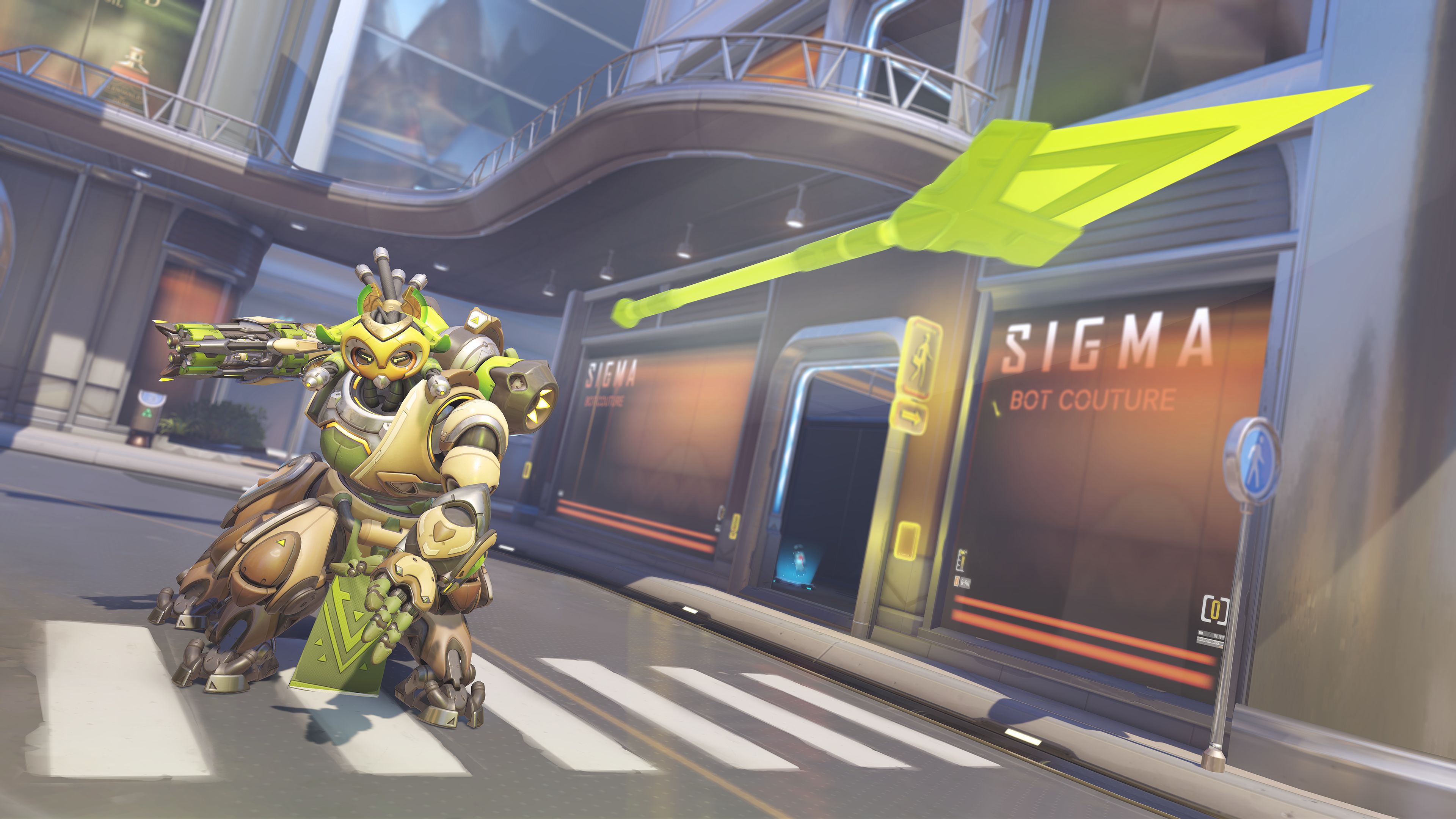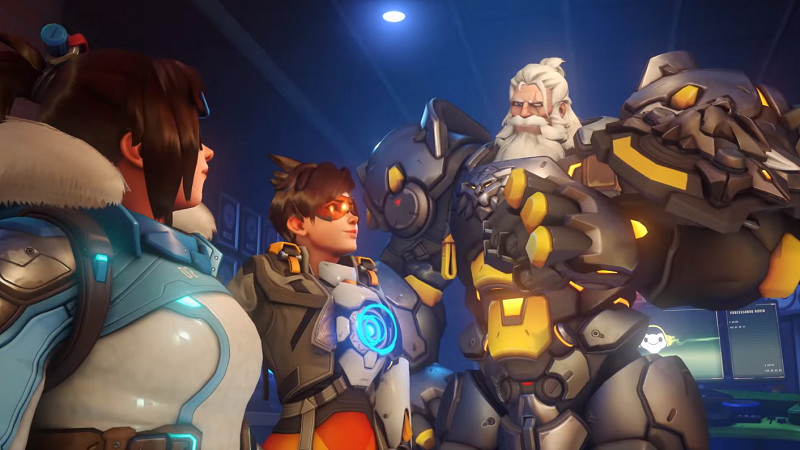After recently promising to do so on social media, Overwatch 2 developer Blizzard Entertainment has finally addressed the topic of bringing the game back to its original 6v6 format in a new Director’s Take blog post posted on Thursday afternoon. Penned by game director Aaron Keller, the article goes over the benefits and drawbacks of both 5v5 and 6v6 in great detail, and confirms that the studio is “exploring how we can test different forms of 6v6 in the game to gauge the results” starting in Season 13.
The post is extensive and warrants a full read, but the TL;DR is that while 6v6 had high highs with a stronger emphasis on teamplay, creative tank synergies, and less pressure on individual players, the removal of a tank from each team when Overwatch became Overwatch 2 was intended to foster more active and satisfying FPS gameplay, reduce the prevalence of and need for crowd control stun abilities, and improve Overwatch’s infamous tank queue problem. Data shared by Blizzard shows that the overwhelming majority of players in the game matchmake as a damage or support hero, leading to lengthy queues as the system tries to find tanks for games.
Debates about whether Overwatch 2 should stay 5v5 or go back to 6v6 have raged for years now, but ultimately, I think there’s a deeper problem here: regardless of the game’s format, tank heroes largely haven’t been fun to play for a long time, and that’s something Blizzard hasn’t been able to fix in years of patches and balance updates.
In the 6v6 era, tank duo combinations were incredibly strong — two tanks who properly layered their defensive cooldowns could make both themselves and their allies feel unkillable — but as evidenced by the queue time issues at the time, this didn’t correlate to them actually being enjoyable. Excellent tank play could completely take over a match, but thanks to all the hard crowd control and debilitating effects that were in the game to counter it, the margin for error to make mistakes in felt almost non-existent. As a tank main, the pressure I felt to perform was crushing as a result, with even small errors often snowballing into being stunlocked and completely run over in the blink of an eye.
Overwatch 2’s game-wide crowd control reduction and major buffs to tanks to compensate for the loss of one on each team had me hopeful it would adequately address this, but in my experience, that hasn’t been the case. Being the only tank on your team means you’re always on the receiving end of the stuns that still remain in the game, many of which aren’t affected by the tank role’s knockback-reducing passive. On top of that, the reworks given to tanks to make them more survivable generally don’t feel like they’re enough to balance out the fact you’re now always the main target, outlier cases like early Overwatch 2 Orisa and current Mauga notwithstanding. That particular issue has only been exacerbated by the DPS role passive that reduces incoming healing to you by 10% as long as you’re being actively damaged (it’s reduced from the 20% that affects non-tanks, but still).
I’ve given a lot of thought about what Blizzard could do to make playing tank feel less stressful and high-pressure, but ultimately, I’m not really sure. Further increasing their resilience while toning down their offensive potency some seems like it could work, but then you risk tanks not being threatening enough to actually take space and demand the enemy team’s attention. A different route would likely need to be explored if 6v6 returns to avoid Overwatch 1’s original problems; perhaps in that context, the developers could lean into making tanks more resistant to crowd control so the effectiveness of tank synergies can be reduced without players feeling like they’ll be instantly blown up if they make a single misplay. The recent reveal of the upcoming support hero Space Ranger Juno also has me wondering if something movement speed-related could help.
I don’t envy Blizzard’s position here, but it’s also clear to me that regardless of whether Overwatch 2 goes back to 6v6 or stays 5v5, the frustrating nature of the tank role is something that will need significant and targeted changes. I’m not sure what those should be — I’m not a developer or designer, after all — but as a tank player, I probably won’t be interested in the game again unless there’s some progress made on this front.
One thing I am glad about, though, is that the studio is planning to test out different balancing ideas for Overwatch’s core team compositions, with at least one Quick Play: Hacked playtest confirmed to be coming later this year. The game’s format is an enormously complicated subject, and where tanks fit into it is undoubtedly something Blizzard will be looking into; with that in mind, I’m glad the community will have the opportunity to test solutions it cooks up and give plenty of feedback.
Overwatch 2 is currently available as a free-to-play game on Xbox Series X|S, Xbox One, Windows PC, Nintendo Switch, PlayStation 5, and PlayStation 4. If you’re a fan of team and class-based hero shooters, it’s one of the best Xbox games and best PC games to play.






